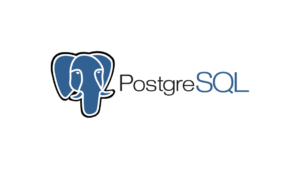PostgreSQL

PostgreSQL is a powerful open-source RDBMS for storing, managing, and analyzing data. It’s highly customizable, reliable, scalable, and secure.
Why PostgreSQL?
PostgreSQL is a popular choice for many organizations and developers because it offers a rich set of features, including support for advanced SQL queries, transaction processing, concurrency control, and data integrity. It’s also highly customizable and extensible, with a large and active community of developers who provide support and contribute to its ongoing development. Additionally, PostgreSQL is known for its reliability, scalability, and security, making it a great option for businesses and applications that require a robust and secure database management system.
What is PostgreSQL?
PostgreSQL is a powerful open-source relational database management system (RDBMS) that is used for storing, managing, and analyzing data. It provides a rich set of features, including support for advanced SQL queries, transaction processing, concurrency control, and data integrity. PostgreSQL is highly customizable and extensible, allowing developers to extend its functionality with user-defined functions, procedural languages, and other tools. It also has a large and active community of developers who provide support and contribute to its ongoing development. With its reliability, scalability, and security, PostgreSQL is a popular choice for many businesses and applications worldwide.
What are its functionalities?
PostgreSQL offers a wide range of functionalities, including:
- Advanced SQL queries: It supports advanced SQL features such as subqueries, window functions, and common table expressions.
- Concurrency control: It provides multi-version concurrency control (MVCC) to ensure that multiple transactions can access the same data without conflicts.
- Transaction processing: It supports transaction processing, which ensures that data changes are atomic, consistent, isolated, and durable (ACID).
- Extensibility: It is highly extensible and can be customized with user-defined functions, procedural languages, and other tools.
- Data integrity: It provides a range of data integrity features, including constraints, triggers, and referential integrity.
- Replication: It supports various types of replication, including master-slave replication and multi-master replication.
- Scalability: It is designed to be scalable, with features such as table partitioning and support for large databases.
- Security: It provides a range of security features, including authentication, authorization, and encryption.
- Full-text search: It provides a powerful full-text search engine that allows users to search for text within documents.
- Geospatial data: It supports geospatial data types and provides a range of geospatial functions for working with geographic data.
Links
Check out Simon’s blog if you want to know more : Simon Sourcing
Some very good info on Gartner : Read more at gartner.com
